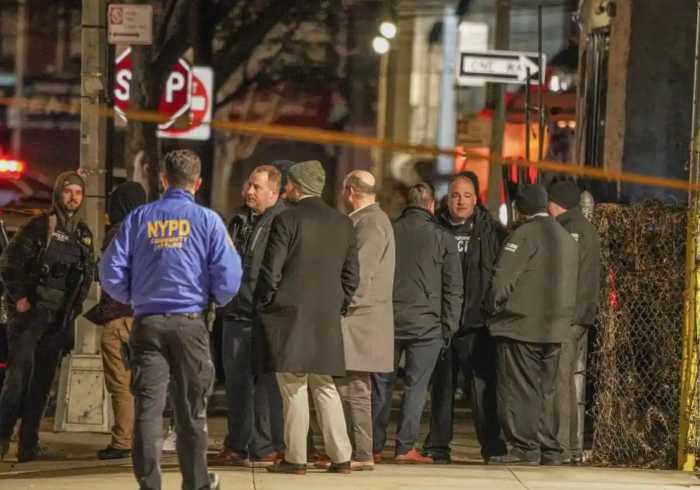By Kenneth Kowald
Monday, May 26, will mark the sixth Memorial Day since we started this stupid, unnecessary war in Iraq.
For many, the day will pass with little notice. The politicians will be out saying we must “stay the course” — whatever that means — or we must get out of this quagmire — whatever that means.
Memorial Day sales will be in full swing — and why not? We have never been asked to sacrifice for this war. Quite the contrary. Can any reader come up with a sacrifice?
Yes, the families and friends of 4,100 young men and women can, but their voices are stilled most of the time. I have lost count of how many Queens residents have died thus far. It should be, I think, at least around three dozen.
We have left our battles to people who volunteer to do such dirty work. We are the only industrialized nation which does not mandate some form of service to the nation.
That, of course, is because we do not have a draft of any kind, which would make us all more concerned about how we squander our treasure in lives and money.
The economy and a never-ending presidential contest have taken Iraq off the front pages and nightly news programs.
How many “support our troops” banners have you seen on cars recently? Those that exist have faded with our memories of “mission accomplished” and other lies. Every reason for starting this war was a lie.
So we forget the dead and we forget the living, too. It is just too expensive to give veterans proper health and mental care, isn't it? It is just too expensive to provide education and housing for them, isn't it? It is just not possible to find the money because we will not levy the taxes to do the job, right?
Yet we continue to pour billions into Iraq every day. The chickens will come home to roost after the worst president in this nation's history retires to Texas.
On this occasion, I am reminded of Walt Whitman. This Long Island native, who taught in and around Bayside in his early days, published his poetry collection “Leaves of Grass” in 1855. He added to the collection with each new edition. In 1865, the section called “Drum Taps” chronicled the Civil War years.
Whitman saw the conflict and its horrors close-up. Early in the Civil War, Whitman went to Washington, D.C., to help his wounded brother, George. In all the war's years, Whitman must have helped tens of thousands of the wounded and dying. He wrote letters for them, brought them small gifts, read to them, listened to them and sorrowed with them.
He wrote that almost every morning, on his way to work, he would see former President Abraham Lincoln in his carriage. After a while, he and the Great Emancipator bowed to each other as they met.
When Lincoln was assassinated, Whitman wrote what is arguably the greatest poem by an American. Toward the end of this magnificent threnody, “When Lilacs Last In the Dooryard Bloom'd,” he wrote something all of us might remember this Memorial Day:
I saw battle-corpses, myriads of them,
And the white skeletons of young men—I saw them;
I saw the debris and debris of all the dead soldiers of the war;
But I saw they were not as was thought;
They themselves were fully at rest—they suffer'd not;
The living remain'd and suffer'd—the mother suffer'd,
And the wife and the child and the musing comrade suffer'd,
And the armies that remained suffer'd.


































